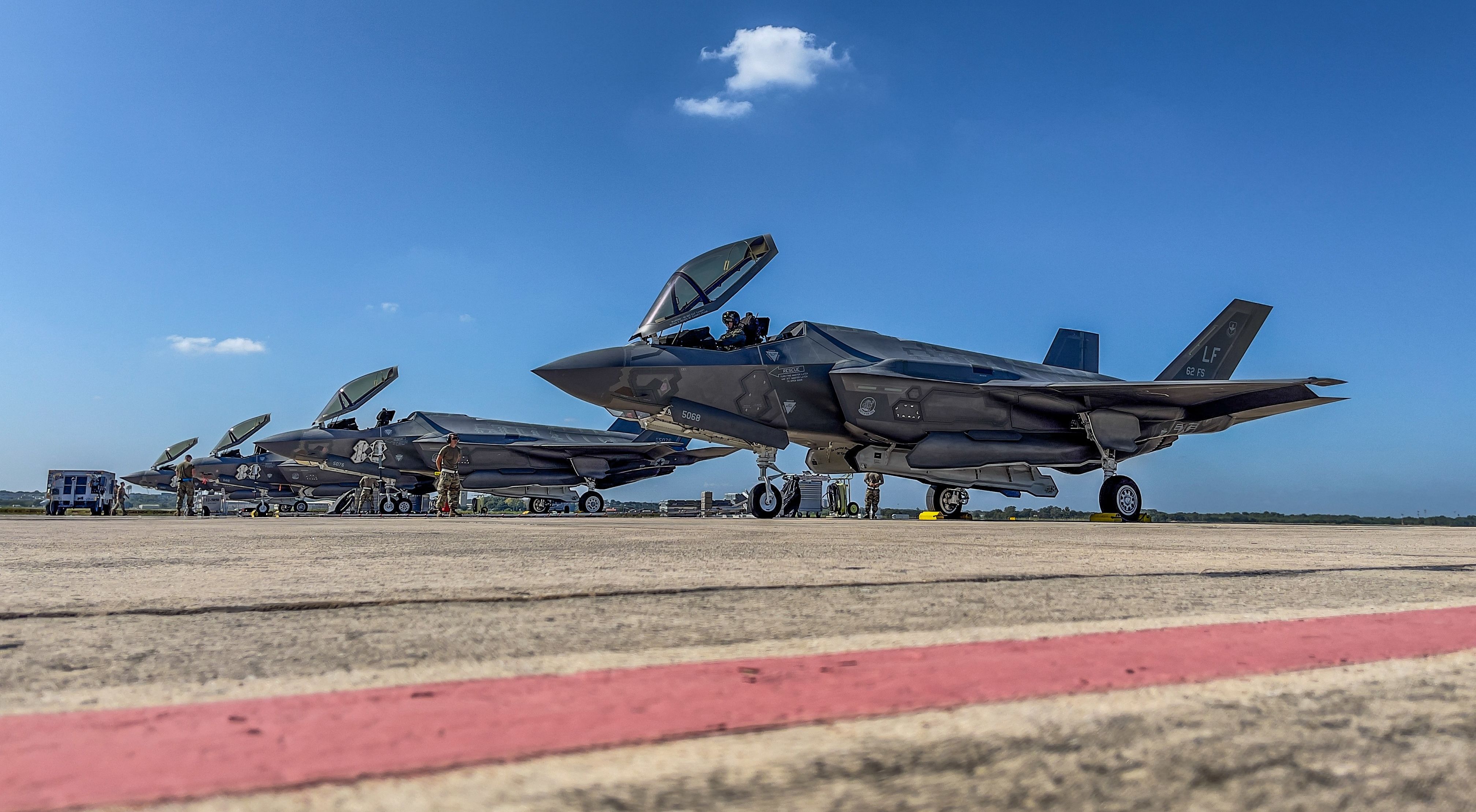The CEO of the world’s largest weapons company, Lockheed Martin, and the manufacturer of the U.S. military’s most expensive weapon system, the F-35 stealth fighter jet, told investors on Tuesday that Israel’s attack on Iran’s air defenses last October helped to "demonstrate [the F-35’s] value here, through the Israel experience.”
Taiclet’s boasts to investors about the program were quickly tempered by real world events the same day when video circulated of an out of control Air Force F-35 tumbling to a fiery crash in Alaska, after its pilot ejected. An “inflight malfunction” led to the crash, said Col. Paul Townsend, commander of the 354th Fight Wing, at a news conference. Townsend promised “a thorough investigation in hopes to minimize the chances of such occurrences from happening again.”
Even aside from the doubts raised by the crash, Tuesday's claim by Lockheed CEO James Taiclet, doesn’t hold up to scrutiny and actually highlights the serious problems with the F-35 program that is estimated to saddle U.S. taxpayers with a $1.7 trillion bill over the project’s lifetime.
Dan Grazier, a senior fellow and program director at the Stimson Center, flagged that Taiclet may be engaged in sleight of hand by touting the effectiveness of the Israeli variant of the F-35, known as the Adir, and the American variant used everywhere else in the world, in his earnings call claims.
“I don’t know that it’s even a valid comparison between the F-35 Adir and an American F-35s. They’re different platforms,” said Grazier. “The Israelis got a special dispensation that no other partner or customer in the program has. The Israelis worked out some arrangement where they have control over the key data rights in the aircraft so they can modify the F-35 in ways that no one else can. It's different from everyone else's F-35.”
Grazier also added that uncertainty about the use of F-35s in the attack on Iran’s air defenses calls into question Lockheed’s assertions.
“If the Israelis were able to destroy Iranian air defence systems but they did it with standoff munitions, then it raises the questions: Did it have to be done with an F-35?,” asked Grazier. “I’d be much more impressed if they said the F-35s flew directly over Iran and destroyed their targets at close range but if they destroyed air defense targets from a standoff range, then I want to know why they needed a stealth aircraft.”
A central critique of the F-35 program is that despite its cost the planes have an extremely low readiness rate. In April, officials acknowledged that the U.S. F-35s are only “mission capable” 55.7% of the time. Grazier says that lack of readiness was on full display in April when the U.S. military played a central role in combating a massive Iranian drone and missile attack on Israel but didn’t send F-35s.
“During that big attack by Iran on Israel, the U.S. didn’t send any F-35s. We sent F-15s. Why didn’t we use F-35s to defend against the Iranian attack?” he asked.
Taiclet assured investors that Lockheed “look[s] forward to a very productive working relationship with President Trump, his team, and the new Congress to strengthen our national defense” and said he is “focused on delivering the best mission-critical defense technology in the world and at the greatest value to the American taxpayer.” He also boasted about how F-35s give Israel the tools to start a new war in the Middle East.
The success of Israel’s F-35s in taking out Iran’s air defences help “clear the way for fourth-gen aircraft, drones to come in and devastate that country if the Israelis decided to do so,” said Taiclet, proudly telling investors that his company had provided Israel the independence and the weapons to start a war with Iran that the U.S. would likely get dragged into.
Were Israeli F-35s to complete this mission, Lockheed would certainly play a crucial role in thwarting Trump’s frequently touted track record of “no new wars” under his watch.
- Would you pay $1.7 trillion for a plane that couldn’t fly? ›
- 'Flop': Proponents of the F-35 can't tell you that it works ›
- The F-35 fighter will now cost more than $2 trillion ›
















